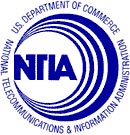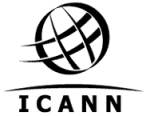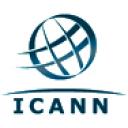Here is video of Jonathan Zittrain’s talk last Friday:
ICANN
NTIA issues statement on JPA mid-term review
 The United States Department of Commerce’s National Telecommunications and Information Administration (NTIA) has issued a statement following the mid-term review of its Joint Project Agreement (JPA) with the Internet Corporation for Assigned Names and Numbers (ICANN).
The United States Department of Commerce’s National Telecommunications and Information Administration (NTIA) has issued a statement following the mid-term review of its Joint Project Agreement (JPA) with the Internet Corporation for Assigned Names and Numbers (ICANN).
The essence of the statement, in keeping with ISOC’s own position, – ‘Steady as she goes. More work to be done.’ Continue reading
ICANN NCUC/ALAC New Delhi minutes posted
 On Feb 12 at the recent ICANN meet in New Delhi the Non-Commercial User Constituency and the At-Large Advisory Committee held a joint meeting. Summary minutes have been posted. Continue reading
On Feb 12 at the recent ICANN meet in New Delhi the Non-Commercial User Constituency and the At-Large Advisory Committee held a joint meeting. Summary minutes have been posted. Continue reading
ISOC New Delhi minutes posted
 The Internet Society has posted the minutes from two meetings held during the recent ICANN event in New Delhi. At the first, the theme was ISOC involvement in ICANN. Topics included chapter involvement in constituencies, the midterm JPA review, and a possible At-Large summit in Paris.. At the second, chapters discussed ISOC’s membership structure and their involvement with OneWebDay, the IGF, and the proposed Internet Bill of Rights. Continue reading
The Internet Society has posted the minutes from two meetings held during the recent ICANN event in New Delhi. At the first, the theme was ISOC involvement in ICANN. Topics included chapter involvement in constituencies, the midterm JPA review, and a possible At-Large summit in Paris.. At the second, chapters discussed ISOC’s membership structure and their involvement with OneWebDay, the IGF, and the proposed Internet Bill of Rights. Continue reading
ICANN announces June Paris meeting
 ICANN’s 32nd International Public Meeting will be held 22 – 27 June 2008 in Paris, France. The meeting is free to attend, and open to any interested person. ICANN encourages broad participation in its bottom-up consensus-development processes. You can participate in these meetings in person, through the webcast or other remote participation opportunities, and/or by joining one of the various ICANN-related mailing lists. Continue reading
ICANN’s 32nd International Public Meeting will be held 22 – 27 June 2008 in Paris, France. The meeting is free to attend, and open to any interested person. ICANN encourages broad participation in its bottom-up consensus-development processes. You can participate in these meetings in person, through the webcast or other remote participation opportunities, and/or by joining one of the various ICANN-related mailing lists. Continue reading
ICANN At-Large forms IPv6 migration working group.
 At the recent meeting in New Delhi the ICANN At-Large Advisory Committee (ALAC) formed a policy working group to focus on IPv6 migration issues.
At the recent meeting in New Delhi the ICANN At-Large Advisory Committee (ALAC) formed a policy working group to focus on IPv6 migration issues.
In ALAC’s view, IPv4 will never be completely obsolete thus it is also important to work out compatibility issues between the two systems. Continue reading
ISOC position on the ICANN Joint Project
 As noted earlier, The Joint Project Agreement (JPA) between the United States government and ICANN will have a mid-term review in March. As part of this review, the US government put out a Notice of Inquiry asking for comments on the continued transition to the private sector.
As noted earlier, The Joint Project Agreement (JPA) between the United States government and ICANN will have a mid-term review in March. As part of this review, the US government put out a Notice of Inquiry asking for comments on the continued transition to the private sector.
ISOC has issued a draft statement that recommends, contrary to ICANN’s desire to complete the process forthwith, that the agreement be allowed to run its full course. Continue reading
Domain Tasting will die in 2008
Blogger Jay Westerdal , who coined the term “domain tasting’, notes a couple of developments that should ring the death knell for those who currently abuse ICANN’s ‘add grace period’ (AGP) policy by repeatedly registering the same names. Continue reading
ICANN asks the US government to be freed from official control
 The Internet Corporation for the Assigned Names and Numbers (ICANN) made the plea in a lengthy report sent to the US Department of Commerce.
The Internet Corporation for the Assigned Names and Numbers (ICANN) made the plea in a lengthy report sent to the US Department of Commerce.
The report will be the focus of a meeting to consider ICANN’s progress on objectives the US government set it in preparation for independence. Continue reading
Veni Markovski issues white paper on IGF
 Veni Markovski, chair of the Internet Society of Bulgaria, and a board member of ISOC-NY, has issued a white paper criticizing the ICANN obsession of many participants in the Internet Governance Forum (IGF) in Rio last year. Continue reading
Veni Markovski, chair of the Internet Society of Bulgaria, and a board member of ISOC-NY, has issued a white paper criticizing the ICANN obsession of many participants in the Internet Governance Forum (IGF) in Rio last year. Continue reading
ICANN launches new public participation portal
 With its first 2008 meeting (in New Delhi) just 3 weeks away, ICANN has launched a new public participation portal at http://public.icann.org/
With its first 2008 meeting (in New Delhi) just 3 weeks away, ICANN has launched a new public participation portal at http://public.icann.org/
The site is not only an important resource for on-site meeting participants, but also an essential element for those who wish to participate remotely.
‘Dashboard’ Allows Window into ICANN Performance
 11 January 2008
11 January 2008
MARINA DEL REY, Calif.: The Internet Corporation for Assigned Names and Numbers today released the first version of a new ‘Dashboard‘ that will offer measurements of ICANN’s performance in numerous areas across the organization. Continue reading
Will there really be a new Russian Internet?
There have been some reports in the past few days about possible “division” of the Internet in Russia, tied in with speculation that the forthcoming Cyrillic domain names will be used to grant the Russian government more control over its citizens. The source of this speculation appears to be an article published in UK newspaper The Guardian. That article was then reproduced in a number of Russian news articles, most of them quoting a direct translation published by SecurityLab.
There was another article, also published by several Russian sources and based on a press-conference given by the Russian country-code top-level domain administration (.ru ccTLDA). Right now ICANN is running tests on TLDs, including one in Russian – http://пример.иÑпытание – and the article made clear that the desire of the Russian Internet community would be, if the tests are successful, to have a new IDN – .РФ (from Russian Federation, in Cyrillic).
IPv6 finally coming to root DNS servers
The current IPv4 protocol used on the Internet is running out of the addresses needed to accommodate the growing number of users online.
The American Registry for Internet Numbers (ARIN), the organization responsible for giving out IP addresses in North America, says that 19 percent of the IPv4 addresses are still available, while 68 percent have been allocated and 13 percent are “unavailable,” whatever that could mean. There are 4.3 billion IPv4 addresses, or 2^32. IPv6 has 2^128 addresses, or 16 billion-billion.
There have been efforts to get more mileage out of IPv4 by using tricks like conversions to IPv6 or using duplicate IPv4 addresses within a firewall. This has helped extend the lifespan of IPv4 but it only prolonged the inevitable.
Until now the biggest obstacle to IPv6 has been the fact that IPv6 address information is not included in most of the root DNS servers that power the Internet. DNS (Domain Name Service) is the Internet service that translates domain names such www.example.com into the numeric IP (Internet Protocol) addresses such as 198.105.232.4 that are actually used to connect computers on the Internet.
Starting on February 4th, at least one of those adoption barriers will be addressed as records for IPv6 addresses are added to four of the key root DNS servers. The inclusion of the IPv6 records could make the adoption and operation of IPv6 a more viable option for network operators.
GNSO Initial Report on Domain Tasting
 The “GNSO Initial Report on Domain Tasting” has been posted for comment at http://gnso.icann.org/issues/domain-tasting/gnso-initial-report-domain-tasting-07jan08.pdf [PDF, 293K].
The “GNSO Initial Report on Domain Tasting” has been posted for comment at http://gnso.icann.org/issues/domain-tasting/gnso-initial-report-domain-tasting-07jan08.pdf [PDF, 293K].
The comment period will be from 8 January 2008 to 28 January 2008. Continue reading

